In May 2025, Professor Jove Jim S. Aguas, PhD, and...
Read More
Announcements

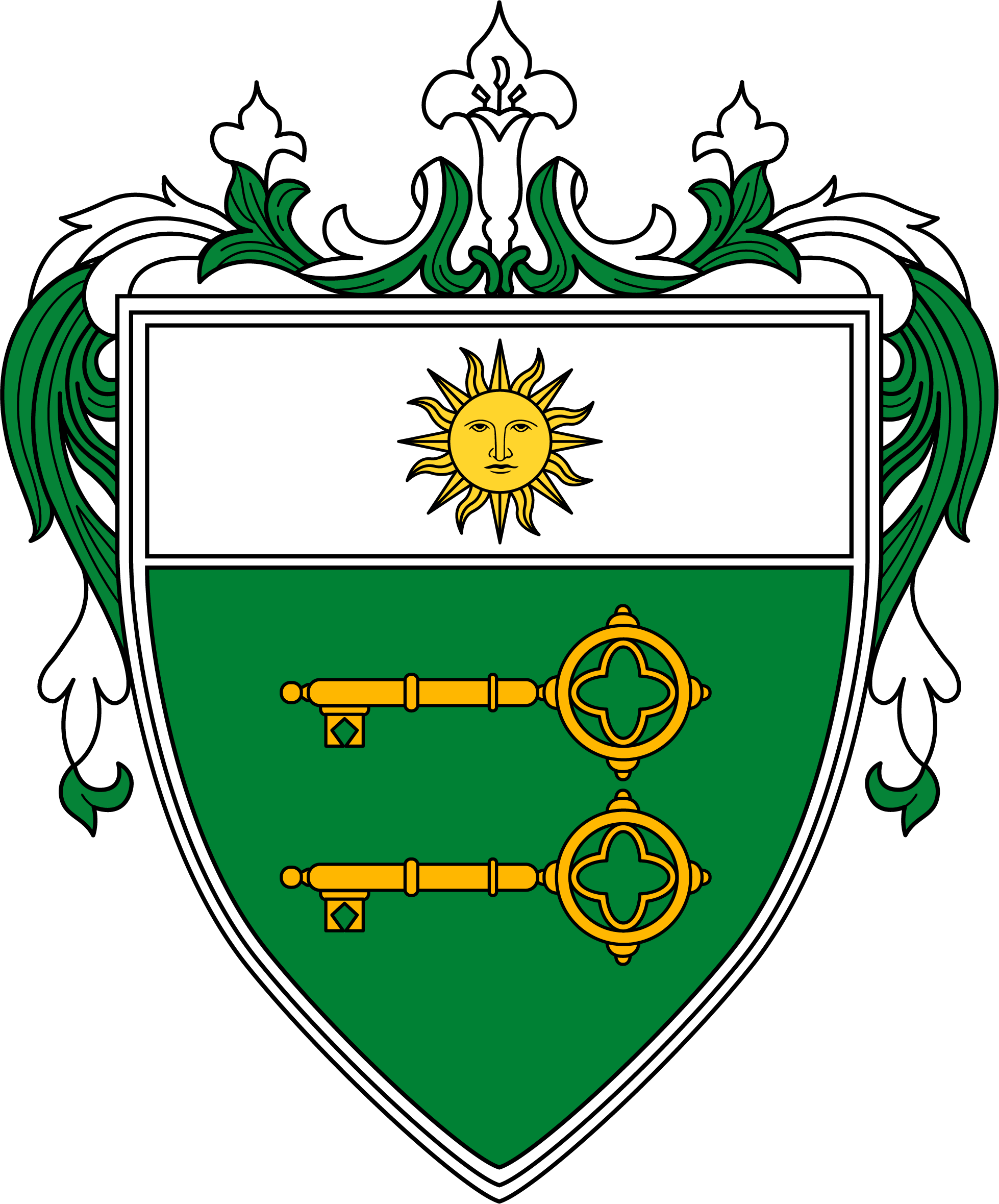
Faculty of Canon Law (1733)
Doctor of Canon Law
Licentiate in Canon Law
Bachelor of Canon Law

Send us your feedback
The Faculty of Canon Law is primarily open to future members of the diocesan clergy. However, they are also open to religious men and women and lay persons, provided they meet the required qualifications (Sapientia Christiana, art. 31 and UST-Ecclesiastical Faculties’ Statutes, art. 21).
To be admitted to the Faculty, clerics and religious must present a written permission from their respective Ordinary or Superior. Laypersons seeking admission to the Faculty should present a certificate of good moral character and a letter of recommendation from their respective Local Ordinary (Statutes, art. 18, n. 2).
The regulations for admission in the Faculty of Canon Law, in accordance with the latest provisions of Sapientia Christiana are the following:
It is a requirement for admission that the applicant has a good command of the English language and a suitable knowledge of the Latin language.
All applicants must present valid credentials testifying their previous studies including their training in philosophy and theology. All new students must submit upon admission, other than the written recommendation of the Major Superior or Ordinary, the following documents: a) Certificate of Good Moral Character and/or Honorable Dismissal from the previous school; b) Official Transcript of Records.
All applicants to the Faculty of Canon Law, unless they have already earned a degree from the other two Ecclesiastical Faculties, must take and pass the entrance examination. The entrance examination is normally composed of the Mental Ability Test, English Test, Latin Test, and Essay Test (two theses on Theology). Other items may be added depending on the recommendation of the Admission Committee.
No student may be admitted into the Faculty of Canon Law to work for a degree simultaneously with another academic degree from another faculty (General Statutes, University of Santo Tomas, 2000, art. 63, no. 4).
The admission of students to the Faculty is processed by the Admission Committee, whose functions are the following (Statutes, art. 18, no. 3):
The Admission Committee is composed of the Dean of the Faculty as Chair, and one Faculty member elected by the Faculty Council, and the Secretary of the Ecclesiastical Faculties as members. In the admission of diocesan resident seminarians, the Rector of the Central Seminary should also be a member of this Committee.
A. First Cycle: Preparatory Program
This cycle is preparatory for admission to the Licentiate program in Canon Law, since it is intended for those who have no previous training in philosophy or theology. The cycle lasts for four (4) semesters or two (2) years.
B. Second Cycle: Bachelor/Licentiate in Canon Law
The second cycle provides an in-depth study of the books of the Code of Canon Law and related disciplines, an introduction to the Code of Canons of Eastern Churches, Latin and other optional courses or exercises required by the Faculty (cf. Norms, 56, 2). Likewise, students are required to learn the methods of scientific research in the preparation of a written dissertation. The duration of this cycle is six semesters or three years, and ends with the conferment of the degree of Licentiate in Canon Law.
C. Third Cycle: Doctorate in Canon Law (J.C.D)
Lasting for at least two (2) semesters or one (1) year, this cycle aims to bring students to perfect the canon law training necessary for scholarly research in view of preparing a doctoral dissertation and to interpret correctly the sources of law. In addition to Canonical Latin, students are required to take at least two (2) additional special courses or seminars and the corresponding units in thesis writing, complemented by a relevant and well-elaborated thesis, which must be the product of scholarly work and a contribution to the progress of the science of Canon Law (cf. Sapientia Christiana, 76c, Norms 56, 3).
Students are given appropriate scholarship for their studies. All are however required to pay miscellaneous fees.
Students will also be required to pay other fees which include examination fees, thesis defense fee, adviser’s fee, and others.
Tuition, miscellaneous, examination and other fees vary from year to year and are based on the University’s computation of the charges.
Tuition, miscellaneous, examination and other fees vary from year to year and are based on the University’s computation of the charges.
As a matter of general policy, the Faculty of Canon Law does not accept transferees. In meritorious cases, however, the matter will be referred to the Admission Committee.
Students in the Faculty of Canon Law are classified as follows:
Students admitted to and enrolled in the Faculty of Canon Law are bound by that token to abide by and comply with all rules, regulations, policies and requirements of the institution. Students found wanting in the observance of rules, regulations, policies and requirements, particularly the observance of the study program, the attendance at classes and the taking of examinations shall be subject to commensurate disciplinary action as decided by the Dean or the Faculty Council.
In cases of grave violation of regulations, students may be suspended or even expelled from the Faculty. However, the students involved shall always be given the chance to defend themselves and thus, to safeguard their rights in accordance with the procedure established in the Student Handbook of the University.
All complaints against students’ misdemeanor should be formally forwarded to the Office of the Dean who shall initiate the investigation, and possibly determine the proper disciplinary action whenever applicable.
To provide the students with an adequate forum for student dialogue, with a venue to exercise co-responsibility in their formation and with a representative body for their participation in the life of the Ecclesiastical Faculties, they shall have a Student Council to be governed by the rules of the Church and the University.
Through the Student Council and its various commissions, the students shall be encouraged to organize academic, cultural, liturgical and community-service activities. These and other related activities, particularly the academic, are to be supervised by the Administration of the Faculty according to the principles of solidarity and subsidiarity.
The cyclical courses of study offered in the Faculty lead to the following degrees:
As a matter of general policy, enrollees for the Licentiate or Doctorate degree must be able to finish the program within five (5) years following their enrollment. Those who do not meet the prescribed period may be required to take refresher courses to be determined by the Dean.
Course Description
Admission Requirements
Courses Offered
Course Description
Admission Requirements
Courses Offered
Requirements for the Degree
Bachelor (JCB): This degree is conferred after the completion of the courses prescribed for the second cycle.
Licentiate (JCL): This degree is conferred upon the completion of the three-year second cycle (with a general weighted average of 2.000), submission of a written thesis under the guidance of a Moderator, a written comprehensive examination on the entire Code of Canon Law, a successful oral examination (including the thesis defense) before a panel of three examiners appointed by the Dean.
A student must have a general weighted average of 2.000 by the end of his/her second year for the second cycle for him/her to be admitted to the Licentiate program. He/she needs to maintain this general weighted average in order for him/her to qualify for the examinations for the degree (written comprehensive examination and oral thesis defense). Those with lower general weighted average may only be eligible to pursue the Bachelor’s degree in Canon Law.
Candidates for the Licentiate in Canon Law must have successfully presented and defended a written thesis in front of a three-member panel appointed by the Dean; he must also have accomplished the post-defense requirements:
The final grade for the Licentiate in Canon Law is composed of the general weighted average (1/3), comprehensive written examination (1/3), written evaluation of the content of the thesis and the oral defense of the thesis (1/3);
Guidelines for the Written Comprehensive Examination
Candidates for the Licentiate in Canon Law, after having submitted the approved thesis, should apply for the written comprehensive examination;
On the day of the examination, the candidate will pick three questions (by lottery) from all the theses prepared for the written comprehensive examination; of the three theses, the student shall comprehensively answer only one question for a period of two hours.
The examination paper will then be forwarded by the Dean to two examiners who will evaluate the answers using the following grading system.
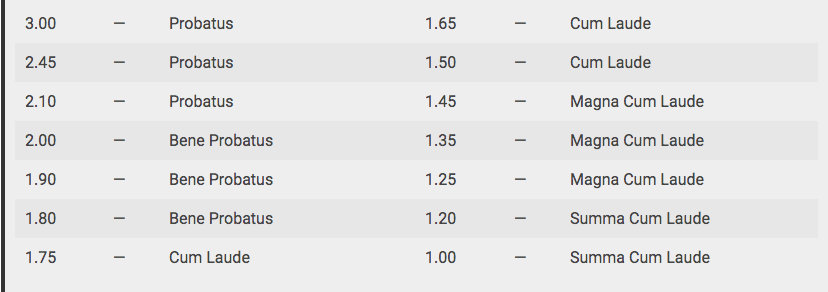
Download: Canon Law Guidelines
Thesis Writing and Post-defense Requirements
Course Description
Lasting for at least two (2) semesters or one (1) year, this cycle aims to bring students to perfect the canon law training necessary for scholarly research in view of preparing a doctoral dissertation and interpreting correctly the sources of law. In addition to Canonical Latin, students are required to take at least two (2) additional special courses or seminars and the corresponding units in thesis writing, complemented by a relevant and well-elaborated thesis, which must be the product of scholarly work and a contribution to the progress of the science of Canon Law (cf. Sapientia Christiana, 76c, Norms 56, 3).
Admission Requirements
Courses Offered
Requirement for the Degree
The Faculty of Canon Law shall cultivate and promote its own disciplines through scientific research, by establishing or availing itself of specialized research centers, by publishing scientific journals and collections, and by organizing and/or participating in scientific workshops or conferences.
The Faculty of Canon Law is entrusted by the Church with the task of preparing with special care students for the priestly ministry, for teaching the sacred sciences, and for the more arduous task of the apostolate (cf. Sapientia Christiana, Foreword, III). Furthermore, it is enjoined by the Church “to promote the continuing permanent education of the ministers of the Church” (cf. Ibid., art 3, #2).
The Faculty of Canon Law is closely connected with the mission of evangelization of the Church; hence, it has to collaborate effectively in the work of evangelization, in close communion with the Hierarchy of the universal as well as of the local Church, in its pastoral, doctrinal, ecumenical and missionary undertakings.
The work of evangelization is primarily directed to the understanding, defense and diffusion of faith within the whole context of culture and human society (cf. Sapientia Christiana, Norms of Application, art.3). As a primary component of the University of Santo Tomas, the Catholic University of the Philippines, the Faculty of Canon Law shares in the University’s responsibility to be an educative community permeated with the spirit of freedom and charity (cf. Gravissimum Educationis, 8).
The Faculty of Canon Law has for its purpose the study and promotion of ecclesiastical juridical disciplines in the light of the Gospel and the molding of students in the spirit of Church Law, so that they may be prepared for scientific research, for the development, interpretation, and teaching of the same in seminaries, houses of studies and universities, and to train people for professional practice in diocesan and religious curia as well as for holding special ecclesiastical posts. The Faculty of Canon Law shall with special interest search for ways to harmonize the difference between the laws of the Church and those of the State.

The Philippiniana Sacra is the official publication of the Ecclesiastical Faculties of the University of Santo Tomas, Manila, Philippines. It is published three times a year with an Ecclesiastical Approval.
Articles written in English, Spanish, Latin, and Filipino (with English translation) and focusing on Philosophy, Theology, and Canon Law are welcome. Submitted manuscripts are subjected to a qualitative assessment of the editorial board and double-blind review.
The Philippiniana Sacra is presently a Commission on Higher Education-recognized research journal, with Category A-2 rank.
In May 2025, Professor Jove Jim S. Aguas, PhD, and...
Read MoreIn various paper presentations, Filipino thought was expounded on by...
Read More
(ca. 1175-1275), priest
Patron of the UST Faculty of Canon Law and the UST Faculty of Civil Law
Feast Day: January 7
Belonging to a noble family of Peñafort, Raymond was born in Barcelona, Spain around 1175. He became a distinguished theologian and professor of Canon Law at the University of Bologna; and while there, he joined the Order of Preachers in 1222. Eventually, he was ordained to the priesthood and became a celebrated Master of Canon Law. When Pope Gregory IX appointed him papal chaplain and penitentiary, he compiled and revised the papal Decretals, which was the basis of the Code of Canon Law of the Church until 1917. He had to rewrite and condense the decrees that had been multiplying for centuries. In 1235, he was named Archbishop of Tarragona but he was able to persuade the Pope to recall his appointment due to health reasons.
At the request of his brethren, he composed the famous Summa Casuum, a manual for confessors and preachers concerning the correct and fruitful administration of the Sacrament of Penance. In 1238, he was elected as the third Master of the Order and revised the Dominican Constitution (which was to remain in effect until 1924), but he resigned two years later also due to health reasons. Retiring to Barcelona, he spent the next thirty-five years preaching, hearing confessions and working for the conversion of Jews. He studied the Koran to dialogue with Moslems, and introduced the study of Arabic and Hebrew into several Dominicans convents. Furthermore, it was at his request that St. Thomas Aquinas wrote the Summa Contra Gentiles to aid missionaries in explaining the Christian religion to, and defending it against, dissenting points of doctrine in Islam and Judaism. He died a centenarian in 1275 and was canonized by Pope Clement VIII in 1601.
The reputation of St. Raymond in juridical science and his immense contribution to the codification of the Canon Law underscore the virtues to be imitated by the UST Faculty of Canon Law and the UST Faculty of Civil Law. Established in 1681, the UST Faculty of Canon Law undertakes the work of evangelization to understand, defend and proclaim the faith within the context of culture and human society, collaborating effectively in its pastoral, doctrinal, ecumenical and missionary undertakings. Moreover, the UST Faculty of Civil Law, the oldest lay faculty in the Philippines (1734), continues to impart solid formation, imbued with Christian virtues and principles, and to serve the best interests of the profession, the nation and the Church.
Sources:
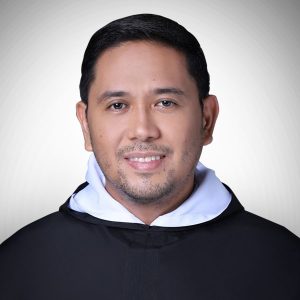
Rev. Fr. Romualdo P. Cabanatan Jr., O.P., JCD
Dean

Asst. Prof. Warren S. Maneja, MA
Faculty Secretary

Rev. Fr. Romualdo P. Cabanatan Jr., O.P., JCD
Chair (Ex-Officio)
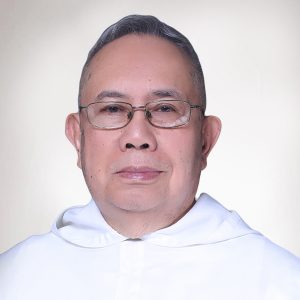
Rev. Fr. Jose Ma. B. Tinoko, O.P., JCD,
Member
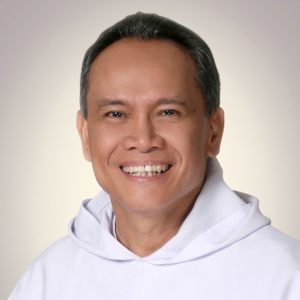
Rev. Fr. Honorato Castigador, O.P., SThL, JCL,
Member
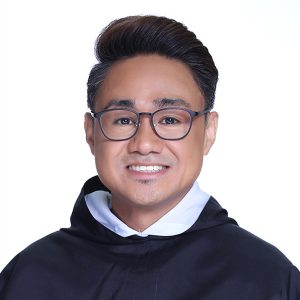
Rev. Fr. Julius Paul C. Factora, O.P., JCD,
Member
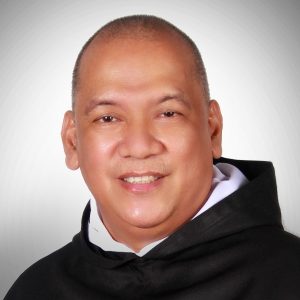
Rev. Fr. Romulo V. Rodriguez, O.P., JCD,
Member
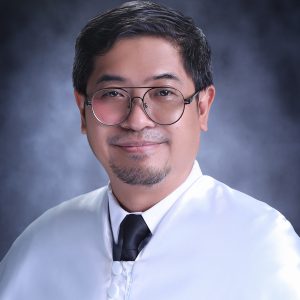
Asst. Prof. Warren S. Maneja, MA
Secretary (Ex-Officio)
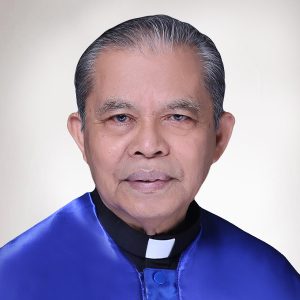
Rev. Fr. Reynaldo J. Adalid, O.P., SThB, PhL

Sr. Esther Bravante, O.P., JCL

Rev. Fr. Romualdo P. Cabanatan Jr., O.P., JCL

Rev. Fr. Honorato C. Castigador, O.P., PhL, SThL, JCL
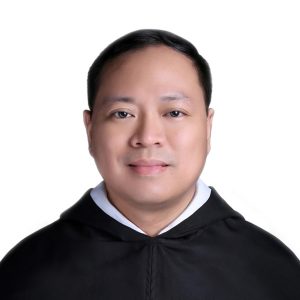
Rev. Fr. Louie R. Coronel, O.P., EHL

Rev. Fr. Julius Paul C. Factora, O.P., JCD

Rev. Fr. Danilo Flores, JUD

Rev. Msgr. Edgardo Pangan, JCD

Rev. Fr. Msgr. Bernardo R. Panitin, JCD
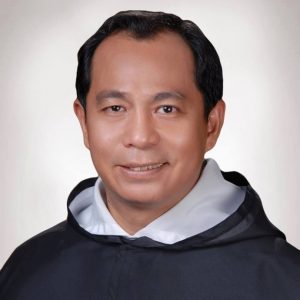
Rev. Fr. Roberto Ceferino N. Pinto, O.P., JCL

Rev. Fr. Romulo V. Rodriguez, O.P., JCD

Rev. Fr. Jose Ma. B. Tinoko, O.P., JCD
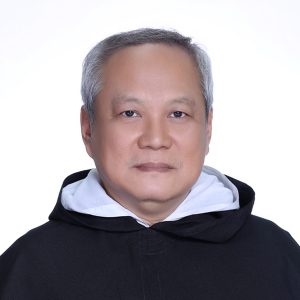
Rev. Fr. Isaias Antonio D. Tiongco, O.P., JCD

Rev. Fr. Vicente R. Uy, JCD
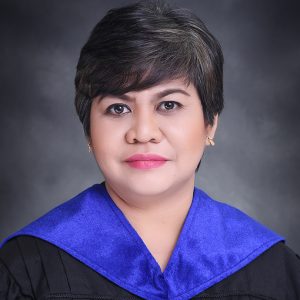

Mr. Jefferson Ong
Office Clerk
(Student Records)

Mr. Aaron James Bautista
General Clerk
(Thesis Writing Concerns, Office Equipment, Job Requisitions)

Mrs. Nona Ong
Office Clerk
(Office Communications and Files)
The Ecclesiastical Faculties of Sacred Theology, Philosophy, and Canon Law have always been considered as integral components of the University of Santo Tomas, which Pope Leo XII proclaimed a Pontifical University on September 17, 1902 through the Constitution Quae Mari Sinico. Pope Pius XII, meanwhile, declared UST as “the Catholic University of the Philippines” in 1947.
Towards the end of the 17th century, when new buildings had been constructed and able men with Doctorate in Canon Law had come to join the professorial staff, the University obtained the Brief “Inscrutabili” from Innocent XI, dated August 7, 1681 whereby this Faculty, together with those of Civil Law and Medicine were erected. On January 17, 1682, the Faculty to teach the canons was granted to the Dominicans by the Master of the Order. King Charles II of Spain also recommended on November 22, 1682, the erection of the Faculty.
However, because of the political unrest then reigning in the Islands, the plan was not carried out, even if Archbishop Pardo, then Rector of the University, had already granted in 1689 the necessary financial aid for its maintenance. Early in the 18th century, in 1702 and again in 1715, the government maintained the establishment of a legal course, but which was however, suppressed in 1726.
The Faculty of Canon Law, along with the Faculty of Philosophy and the Faculty of Sacred Theology has also contributed in the intellectual formation of modern-day Catholic hierarchy and clergy in local Church of the Philippines and other Asian countries, particularly Bangladesh, China, India, Malaysia, Myanmar, Indonesia, South Korea, Sri Lanka, Thailand, and Vietnam. Some countries from Africa (those from Kenya, Ghana, Nigeria, Tanzania, and Zimbabwe and Oceania (particularly Papua New Guinea and Vanuatu) also send their seminarians and priests to complete their degree in Asia’s oldest existing Ecclesiastical Faculties.
Adapted from: Fr. Rodel E. Aligan, O.P., Fr. Richard G. Ang, O.P., Fr. Jose Ma. B. Tinoko, O.P. in 400 @ 800: A Tribute to the 8th Centenary of the Order of Preachers (1216-2016), published by the University of Santo Tomas.